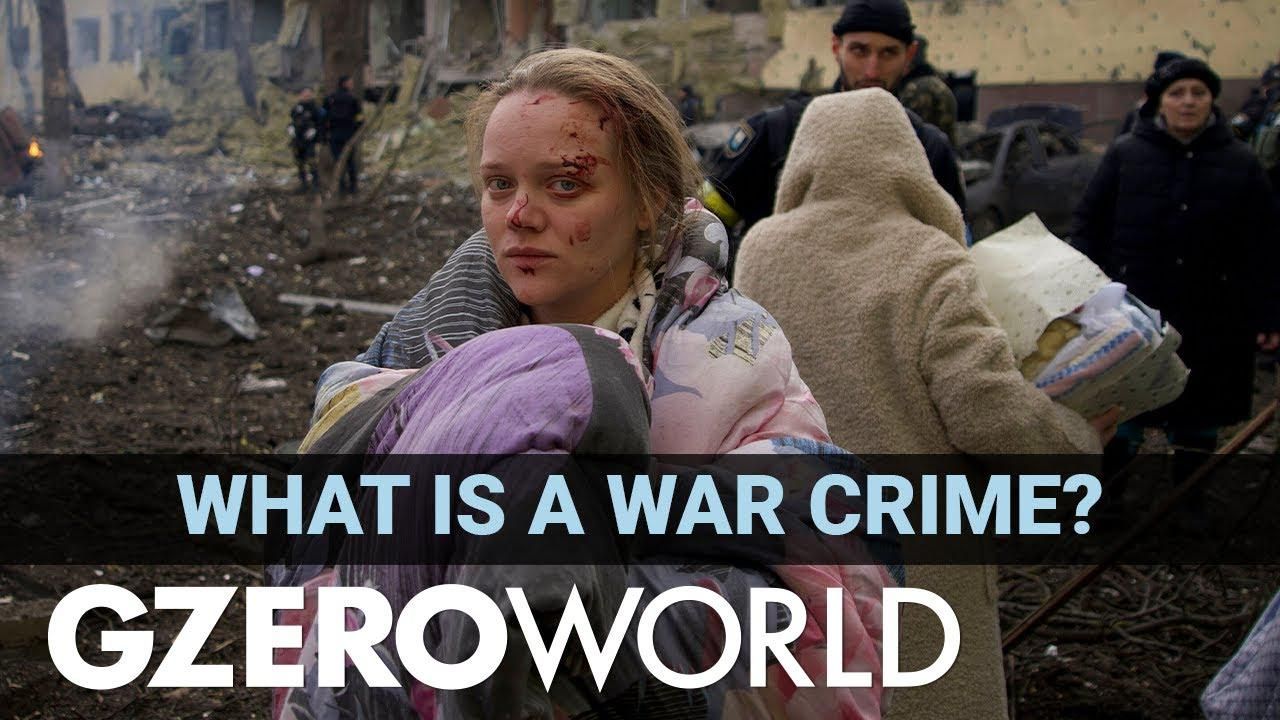April 06, 2022
The accusations of Russian war crimes in Ukraine have shocked the world. The Kremlin, of course, denies targeting civilians and says it’s the Ukrainians who are violating the rules of war. So what happens when one side does commit atrocities during a conflict?
It might be prosecuted for war crimes, like the Nazis who were tried in Nuremberg after World War II, just a few years before the latest version of the Geneva Convention was ratified in 1949, establishing the core of international humanitarian law.
More recently, the UN has set up special courts to prosecute war crimes like those in the former Yugoslavia (this week is the 30th anniversary of the start of the war in Bosnia), and 20 years ago the UN-backed International Criminal Court was established.
Such bodies were able to try the likes of Slobodan Milošević, the former president of Yugoslavia, and convict Charle Taylor, the Liberian warlord-turned-president.
But others evaded justice. Not everyone is on board with international tribunals for war crimes.
The US, China, and Russia have not joined the ICC — in the American case, Bill Clinton tried but it was never ratified by Congress.
Lack of jurisdiction will make it hard — but not impossible — to go after Russians accused of war crimes in Ukraine.
From Your Site Articles
- Davos exhibit reveals civilian death toll in Ukraine - GZERO Media ›
- Russian war crimes exhibit at Davos reveals civilian death toll in Ukraine - GZERO Media ›
- Russian war crimes exhibit at Davos reveals civilian toll in Ukraine - GZERO Media ›
- Russians committing "massive war crimes" in Ukraine - GZERO Media ›
More For You
- YouTube
In this Quick Take, Ian Bremmer addresses the killing of Alex Pretti at a protest in Minneapolis, calling it “a tipping point” in America’s increasingly volatile politics.
Most Popular
- YouTube
Who decides the boundaries for artificial intelligence, and how do governments ensure public trust? Speaking at the 2026 World Economic Forum in Davos, Arancha González Laya, Dean of the Paris School of International Affairs and former Foreign Minister of Spain, emphasized the importance of clear regulations to maintain trust in technology.
- YouTube
Will AI change the balance of power in the world? At the 2026 World Economic Forum in Davos, Ian Bremmer addresses how artificial intelligence could redefine global politics, human behavior, and societal stability.
Ian Bremmer sits down with Finland’s President Alexander Stubb and the IMF’s Kristalina Georgieva on the sidelines of the World Economic Forum to discuss President Trump’s Greenland threats, the state of the global economy, and the future of the transatlantic relationship.
© 2025 GZERO Media. All Rights Reserved | A Eurasia Group media company.
